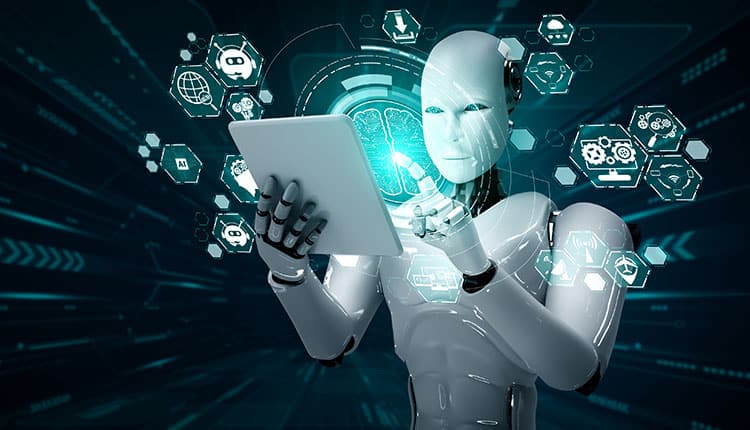
As humans, we possess an ability to conceptualize, curate and create something from nothing! We take inspiration from our surroundings and habitat, and use our imagination to give thought a form and shape, that eventually results in the outcome envisaged.
With evolution and advancement, came in technologies that are programmable by humans to beat human efficiency and get better productivity. The most advanced of this technology is machine learning or ML, categorized under AI – Artificial Intelligence. These advanced technologies have the ability to self-learn, analyze and execute results with super human speed and precision.
With the advent of such technology, a vast majority of the advertising world still continued treading on its traditional ways. Even as I write this, there is some creative director working on an ad script concept or a copywriter scripting a concept or a graphic designer taking inspiration from published images or a marketer spending hours writing a press note for her/ his boss.
With this present state of affairs, what are the possibilities and outcomes of combining human creativity with Artificial Intelligence (AI)? Can we achieve something that’s beyond our imagination? The answer is a resounding – YES !
In today’s world, the creative field has expanded tremendously. It’s not just about artworks, painting, script writing , content development or publishing anymore. The expansion includes the digital world where every habit or habitat is dynamic and what ones create is expected to be productive and yeild results by reaching out to the right audience. Because in this digital era, every aspect digital is measurable.
Personalization and Customization with AI
Knowing of a firm that disowned the SEC classification 15 years ago, by speaking a language of data of thought, behaviour and influences; cut to today where anything and everything that we create has to resonate with people and the only way to have such an outcome is to have a system that comprehensively understands the user audience.
AI has played a significant role in helping us do just that. By analyzing data, AI can assist our research diagnosis to understand the audience’s thought process, sentiments, preferences, behavior rationale, and action/ adoption patterns. This accurate analytical detailing, is an enabler to create, both concepts and content that’s more personalized to the targeted audience.
Extended role of AI
But AI’s role in enhancing human creativity goes beyond just analyzing data. AI assist creative enterprises to ideate and develop unique never thought of concepts too. Based on qualifying and qualitative inputs AI aids in generating new ideas, suggest improvements, and even suggest advertising copy or ad scrips. Of course, this doesn’t mean that AI is taking over the creative realm and replacing our people; instead, it’s another aid for the industry to work more efficiently for better ideation, better conceptualization and appealing content.
In the graphic designing space within the creative field, the function of image recognition to evade any form of creative plagiarism and suggestions of alternative concepts is an effective tech tool for the creative industry. With the help of AI, designers can now automate repetitive tasks, such as resizing images or creating or replicating color palettes. The use of such an intelligent technology as a comrade at work, results in creative designers focusing more on connecting the dots to deliver creative campaigns that get marketing results. Hence from conventional doing, to tutoring technology to optimizing results ; this is how I predict futuristic creative resource of the digital era.
Similarly, in web designing AI can help create personalized experiences for the users. It can analyze user behavior and suggest improvements to the website’s design to make it more user-friendly. This, in turn, can help increase user engagement and retention with an intuitive UI / UX.
In creative writing, AI can help writers come up with new ideas, suggest improvements to the existing content, and even generate new content. This doesn’t mean that AI can replace human writers. Instead, it will assist writers work more efficiently to develop content that has originality and structure.
In social media space,, AI can help us create personalized content and recommended campaigns based on target audience interests, behavior and preferences. This can help increase engagement and reach, leading to better product conversations and conversions.
Conclusion
AI has evolved to enhance human creativity. It’s not about AI taking over the creative field or replacing jobs, but it’s more about working together to create and deliver efficiency and better brand engagement. By analyzing data, generating new ideas, and automating repetitive tasks, AI can aid productivity and overall output. It’s time to embrace this superhuman technology and see it’s results in bettering human productivity. AI is becoming ubiquitous and sooner or later it will completely integrate itself into our personal and professional lives and not adapting to it’s prowess is foolhardy for any enterprise that wants to remain relevant in the near future.



